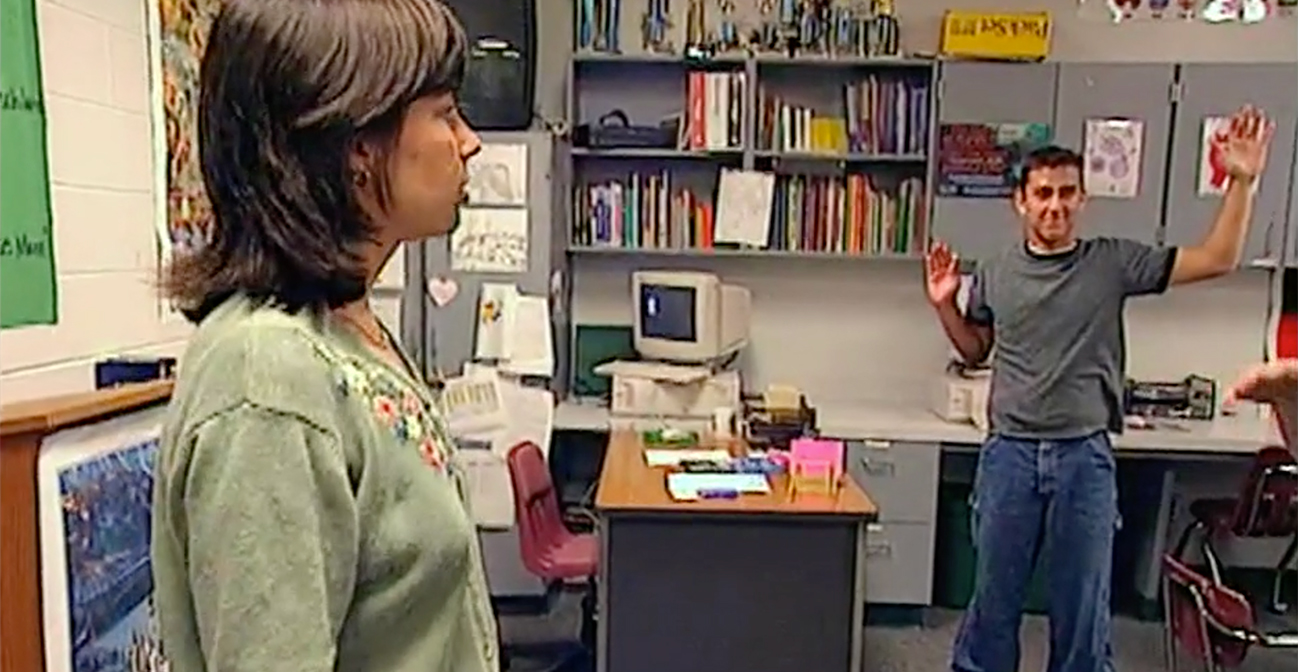Join us for conversations that inspire, recognize, and encourage innovation and best practices in the education profession.
Available on Apple Podcasts, Spotify, Google Podcasts, and more.

CLASSROOM AT A GLANCE
Teacher
Denise Tanner
Language
German I
Grades
9-11
School
Hightower High School, Missouri City, Texas
Lesson Date
April 9
Class Size
15
Schedule
Block schedule, 90 minutes every other day
In this lesson, students learn new vocabulary about sports. After several warm-up activities, students focus on terms related to Olympic sporting events and make cultural comparisons between Germany and the United States. Next, students listen to and interpret a story presented through Total Physical Response Storytelling (TPRS), then recreate that story by acting it out and narrating it themselves. They conclude the activity by rewriting the same story in their own words and contributing to a composite class version.
Communication: Interpersonal, Presentational
Comparisons: Cultural
thematic units
Thematic units are designed using content as the organizing principle. Vocabulary, structures, and cultural information are included as they relate to the themes in each unit. For an excellent example of theme-based units, see the Nebraska Foreign Language Education Web site in General Resources.
Total Physical Response Storytelling (TPRS)
This adaptation of TPR adds the element of storytelling and uses the story narrative or episodic structures to build meaningful comprehension. The technique begins with the teacher telling a story and using actions and gestures to introduce new vocabulary. As students listen to the story, they confirm their understanding by repeating the actions: First they perform the actions for specific events and then recreate the whole story. Once the story is understood, students take over the narrative task, either as a group or individually. See also Total Physical Response (TPR).
Reflect on Your Practice
As you reflect on these questions, write down your responses or discuss them as a group.
Watch Other Videos
Watch other videos in the Teaching Foreign Languages K–12 library for more examples of teaching methodologies like those you’ve just seen. Note: All videos in this series are subtitled in English.
Put It Into Practice
Try these ideas in your classroom. Where it’s not already evident, reflect on how to adapt an idea that targets one performance range for application to other performance ranges.
*Oller, J. W., Jr., ed. “Reasons Why Some Methods Work.” In Methods That Work. Boston: Heinle & Heinle, 1983.
Riley, G. L. “A Story Structure Approach to Narrative Text Comprehension.” Modern Language Journal 78 (1993): 199-221.
World-Readiness Standards for Learning Languages
The World-Readiness Standards for Learning Languages create a roadmap to guide learners to develop competence to communicate effectively and interact with cultural understanding. This lesson correlates to the following Standards:
Interpersonal Communication
Presentational Communication
Cultural Comparisons
Lesson Materials
Sport in Deutschland: Student Work (PDF, 141 K)
Sample worksheet completed by a student about sports preferences in Germany and in the U.S.
Curriculum References
Texas Essential Knowledge and Skills for Languages Other Than English
Denise Tanner’s Additional Resources
Web Resources:
American Association of Teachers of German
Links to German-language, Web-based student exercises; standards-based project ideas; and sites dealing with German history, politics, sports, and other topics